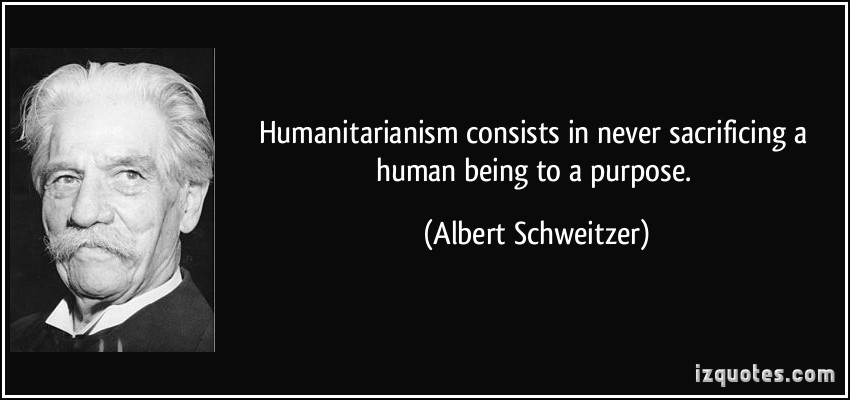The main issue in Polman's book is that the lack of
selectivity between aid workers and other NGOs often lead to “the direct
prolongment of conflict, by keeping the losing side in the game; the indirect prolongment
and exacerbation of conflict, their association with other parties which
inevitably damage their claims of neutrality, and nasty situations in which the
people they are helping aren’t really victims in the traditional sense.” (Aid
Thoughts)
One of the largest problems raised in her book, especially Chapter 5, is that we are either giving aid to the wrong people, or we are doing it for the wrong reasons.
“Ms Polman's prose is scorching. But when it comes to solutions, the author admits she has none. She does not argue for “doing nothing at all anymore”, only that the “option of doing nothing must be available” and “that we no longer exempt the [emergency aid] system from criticism”. That skirts the moral question of humanitarian assistance in the crowded 21st century, which is how to resolve the tyranny of the present and ensure the kind of help that will safeguard the future.”’
One of the largest problems raised in her book, especially Chapter 5, is that we are either giving aid to the wrong people, or we are doing it for the wrong reasons.
“Ms Polman's prose is scorching. But when it comes to solutions, the author admits she has none. She does not argue for “doing nothing at all anymore”, only that the “option of doing nothing must be available” and “that we no longer exempt the [emergency aid] system from criticism”. That skirts the moral question of humanitarian assistance in the crowded 21st century, which is how to resolve the tyranny of the present and ensure the kind of help that will safeguard the future.”’
(The Economist)
Polman
states, “Aid organizations are businesses dressed up like mother Teresa.” She
explains that since the Ethiopian famine in 1984, there gas been an alarmingly
increasing number of aids that have stepped forward in an attempt to save the
day. Most of these groups however, (especially true of religious organizations)
seem to assist as a validation instead of to help those who need aid. These “businesses”
are almost always looking to tie their name to aid programs.
In my
opinion, to make humanitarianism more successful, we all need to educate
ourselves on what good these programs can do for us, and focus ore on the good
it can do for others. “We think of humanitarian aid, for
example, first of all as a form of philanthropy -- a response to an earthquake
in Haiti or a tsunami in Asia, which is obviously a good thing, an effort to
relieve human suffering and save lives, an act of international benevolence.
But there is a puzzle here, for helping people in desperate need is something
that we ought to do; it would be wrong not to do it -- in which case it is more
like justice than benevolence.” (Foreign
Affairs) We need to remember that we have a duty to help all other humans.
https://www.foreignaffairs.com/articles/2011-07-01/humanitarianism
http://aidthoughts.org/?p=2121
http://aidthoughts.org/?p=2121


No comments:
Post a Comment